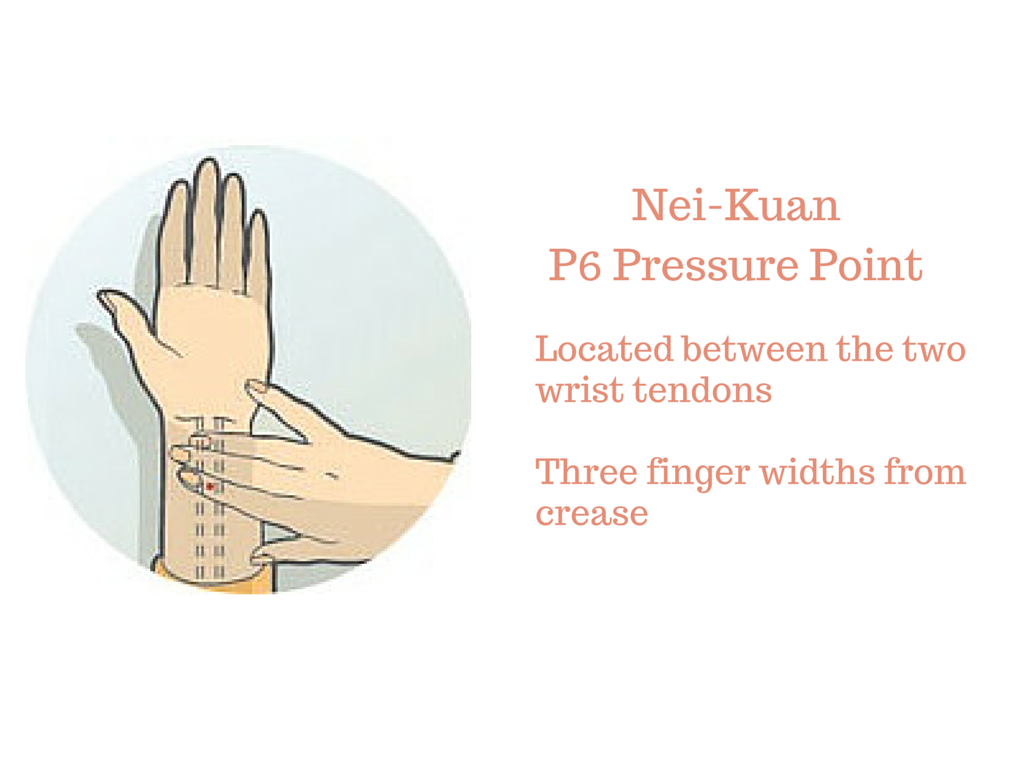timer 6 mins
Do
favorite 632
What helps nausea?

Rhea is a pain management clinical nurse specialist and cancer survivor, sharing her tips on dealing with nausea...
My own experience of nausea was at the more severe end of the spectrum: I faced persistent and debilitating vomiting. The fatigue was beyond anything I could imagine; I couldn’t eat or drink from vomiting multiple times a day (I think on the worst day it was over 20!) I faced several hospital stays for intravenous anti-sickness medication and fluid replacement.
I also faced horrendous guilt. All I could think of was how much I wanted chemo to stop – I just wanted to feel like me again. But, logically, I knew it was helping to rid my body of what I called “my dark passenger” (yes, I stole it from Dexter)..png)
What Causes Nausea?
Nausea and vomiting are reflexes controlled by the autonomic nervous system. They’re set off when the vomiting centre in the brain is activated by certain smells, tastes, movements, pain, chemicals and medications. In the case of cancer survivors, chemo and radiation can often cause nausea.
Nausea and vomiting may be anticipatory (a learnt association), acute (within 24 hours) or delayed (after 24 hours). Each type of nausea and vomiting may need a slightly different approach. There are many anti-sickness medications available and each of these may be better for one type over another e.g. ondansetron is better for prevention, metoclopramide for delayed, and diazepam for anticipatory.
However, sometimes these drugs are not enough and incorporating non-medication techniques may improve your experience and help to reduce the amount of medications you have to use and therefore reduce the risk of side effects like sedation and constipation.
Some individuals are more at risk of nausea and vomiting during cancer treatment and need more aggressive anti-sickness medications, as well as exploring non-medication management options. These people tend to be:
- a younger age (less than 50 years old)
- female
- non-drinkers of alcohol
- someone who experiences motion sickness
- someone who experienced pregnancy related nausea
- anxious about nausea and vomiting
- prescribed a high-risk chemotherapy regimen such as intravenous cisplatin and received concurrent radiotherapy.
In my case, I have a history of hyperemesis (severe nausea and vomiting during pregnancy often requiring hospitalisation) and motion sickness. I was also prescribed the chemo drug cisplatin which is a high risk medication, especially when given together with radiotherapy.
 I tried multiple medications for the nausea, including: cyclizine, ondansetron, metoclopramide, domperidone, aprepitant, dexamethasone and CBD (the boring bit of cannabis). For me it was the domepridone and the dexamethasone that were the most effective, especially the dex (I felt I could eat the world after taking that!)
I tried multiple medications for the nausea, including: cyclizine, ondansetron, metoclopramide, domperidone, aprepitant, dexamethasone and CBD (the boring bit of cannabis). For me it was the domepridone and the dexamethasone that were the most effective, especially the dex (I felt I could eat the world after taking that!)
I also used many of the options discussed below with mixed results. I found hypnosis was great for the anticipatory nausea and car journeys, acupressure helped give me some feeling of control during the acute nausea.
I didn’t find acupressure that effective and would have liked to have tried acupuncture, but I didn’t have access to it. While I can do it myself, I didn’t think it would be particularly safe or sanitary to be stabbing myself with needles whilst retching!
Aromatherapy for me was bitter sweet (pun intended) as I have an aversion to peppermint and ginger since having it forced on me during my pregnancies. I had no awareness of the benefit of sniffing alcohol swabs, however a colleague of mine has tried it for a hangover (research purposes only) and found it to be very effective!
The following are just some of the non-medication approaches to nausea and if anyone has information on other non-medication approaches, please get in touch via Mission Remission - ***">***
Acupuncture or Acupressure
 The acupuncture point P6 or pericardium 6 is used for nausea and vomiting and motion sickness. The stimulation of the P6 point, either with a needle, electrical stimulation such as with a TENS machine or pressure/massage can help to alleviate symptoms.
The acupuncture point P6 or pericardium 6 is used for nausea and vomiting and motion sickness. The stimulation of the P6 point, either with a needle, electrical stimulation such as with a TENS machine or pressure/massage can help to alleviate symptoms.
People can put pressure on this point themselves using a finger or thumb or a specially designed wrist band.
Studies have found mixed results but generally show that at worst P6 stimulation has a similar benefit to the anti-sickness medications ondansetron and metoclopramide – it could be a really useful addition to anti-nausea treatment.
Aromatherapy
The use of aromatherapy oils, either through inhalation or in combination with massage, has been found to help nausea, vomiting & improve our quality of life. Research suggests aromatherapy can also help to ease anxiety and fatigue and improve energy levels and appetite.
The two oils that have been researched the most include ginger and peppermint and both of these can also be effective when the natural products are used in drinks or food. Other oils that may be effective include lemon and lavender, but further research is being conducted into the use of aromatherapy for cancer treatment related side effects (CRUK).

Hypnosis
Hypnosis or hypnotherapy has been used for years for many issues ranging from anxiety, pain, fears and phobias, weight loss, and to stop smoking. It can be delivered by a trained practitioner, listened to on CD or MP3 or via apps and YouTube.
Research suggests hypnosis can be effective for nausea and vomiting, particularly anticipatory nausea. It’s even included in the 2016 European Society for Medical Oncology consensus. The aim of hypnosis is to reduce the negative effect of a trigger, e.g. the car journey to the cancer centre or the smells associated with the cancer unit. This is achieved through the use of suggestions which may be used during the hypnosis session or intended to be used outside of the session in a real-life situation (post-hypnotic).
Post-hypnotic suggestions are intended to take effect outside of the hypnotic state in certain situations, such as when feeling sick. Often, they focus on feeling relaxed, or they try to change the negative response into a positive one. For example, “when you close your eyes and count from 10-1 you will feel calm and relaxed.” Or, “when you place your hand on your stomach and take three deep breaths your feelings of nausea will disappear and be replaced with feelings of calm and relaxation.”
Alcohol wipes
Why, or how Isopropyl alcohol wipes help nausea is not really understood. Research is sparse and has mainly focused on nausea and vomiting after operations or in A&E. However, the research is positive when comparing its use to placebo (saline wipes) or when comparing it to ondansetron.
They’re readily available both in hospitals and community pharmacies, are relatively inexpensive and quick and easy to use with very few reported side effects. It would be reasonable to try this option if you’re a cancer survivor, especially whilst waiting for the medications to take effect –as ondansetron can take up to 30 minutes!
 My name is Rhea. I am a 36 year old wife, mother of two (and one fur baby), pain management clinical nurse specialist and cancer survivor.
My name is Rhea. I am a 36 year old wife, mother of two (and one fur baby), pain management clinical nurse specialist and cancer survivor.
My son was just 12 weeks old when I was diagnosed with stage 2b node positive cervical cancer. I had complications throughout my pregnancy, but my son was healthy and the placenta normal so the symptoms were put down to pregnancy. After giving birth my symptoms worsened and the cancer was found. Treatment included five weeks of chemotherapy (I only managed three due to severe illness and dehydration), alongside external radiotherapy and followed by internal brachytherapy.

Discussion